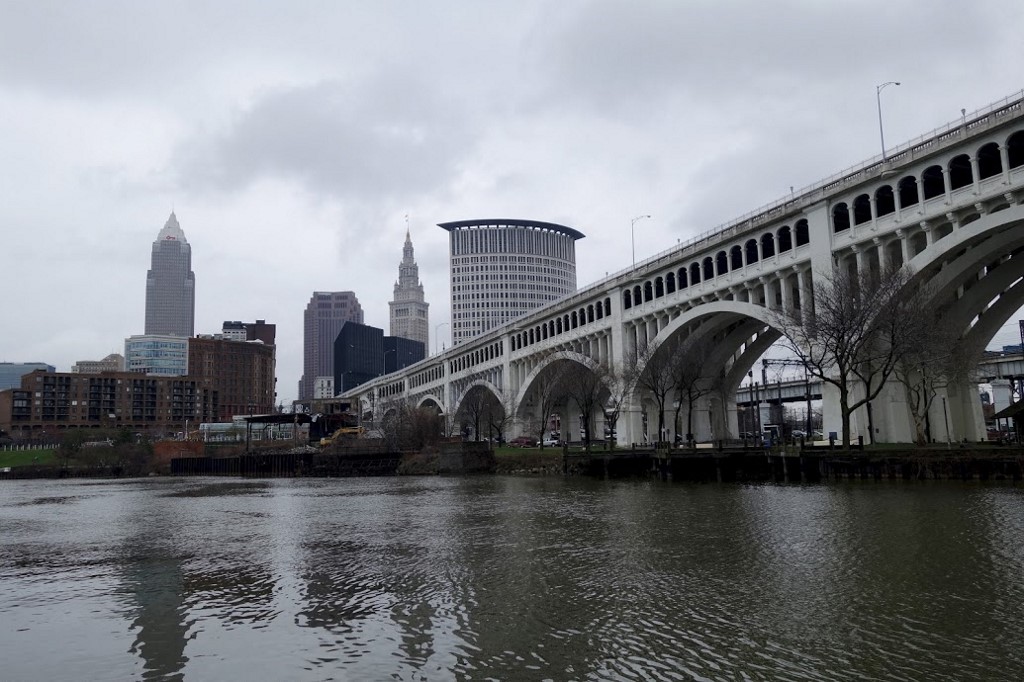Ohio Casinos Show Slight Year-Over-Year Quarterly Increase
-
Bookmakers Review
- May 8, 2025

Casino revenue numbers in the Buckeye State have been released for the first quarter of 2025, and the findings show a slight increase over the first three months of 2024.
Casinos Show Slight Bump in Business
March’s revenue reports revealed a slight decrease in Ohio’s casino revenues, dipping ever so slightly from $94.7 million in March 2024 to $94.4 million in revenue for March 2025. Slot machines produced $68.8 million, while table game revenue was responsible for the remaining $25.5 million.
However, in the first three months of this year, casinos registered $254.1 million, which was narrowly ahead of the $253.9 million in revenue generated in Q1 2024. This marks the second consecutive quarter in which revenues increased year-over-year. Despite the modest increase, it signals that Ohio’s casino industry is on an upward trajectory.
Hollywood Columbus led the pack, posting $26.5 million for March, a 4.4% increase from the previous year’s $25.5 million. Slots produced $19.4 million of the monthly total revenue, with table games delivering $7.1 million.
The Jack Cleveland Casino reported $23.0 million in March revenues, followed closely by Hard Rock Cincinnati, which generated $22.8 million for the month. Hollywood Toledo was closely in the mix, posting $22.0 million in revenues.
Casinos pay a 33% tax on revenues, which is earmarked for public education and responsible gambling programs. Racinos also pay into the public education system while sharing a portion of their profits with Ohio Lottery programs.
Governor Pushes Sports Betting Tax Increase
Ohio Governor Mike DeWine has online sportsbooks in his crosshairs yet again. After launching in January 2023, DeWine decided to double the sportsbooks’ tax contribution just three months later, from 10% to 20%, which took effect in July 2023.
However, the governor has gone back to the same trough by recommending another doubling of the tax from 20% to 40%, a move that has not been as roundly supported as the initial increase. DeWine proposed the latest increase in February, but whether it is ultimately passed is still uncertain. The governor has argued that the sportsbook operators take money from Ohio’s residents and don’t contribute to the economy, as the vast majority of their operations are located in other states.
“These are the companies that are taking all of this money outside, draining it outside of the State of Ohio on gaming,” DeWine said in February. “They ought to pay their fair share, and this would make them pay their fair share.”
DeWine’s pet project is funding a portion of a new Cleveland Browns stadium through public financing using the increased tax revenue derived from sports betting revenues. But there has been pushback on the tax increase and using public funds to help finance a private enterprise.
“You know we started out with a 10% tax on sports gaming; we’ve not even finished two football seasons, and now we’re talking about quadrupling that tax,” said State Rep. Brian Stewart, R-Ashville. “I think that’s going to generate a lot of discussion.”
State Senator Bill Blessing argued that financing a new stadium for the Browns would immediately summon similar requests from other professional sports franchises in the Buckeye State. “If the Browns are going to get something, it is a certainty the Bengals will want money, so will the Reds,” stated Blessing.











